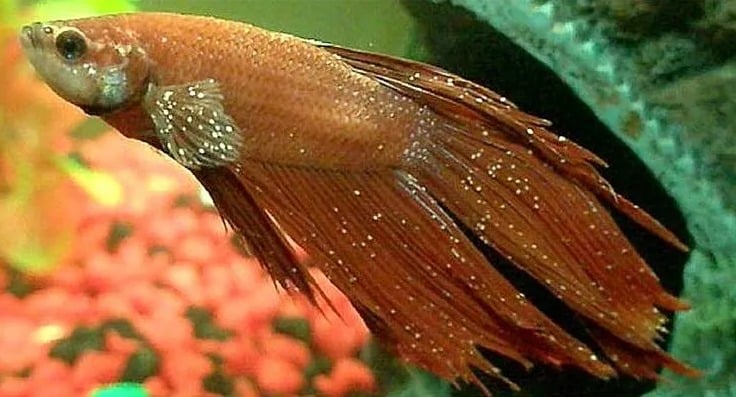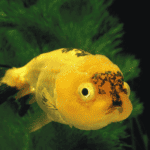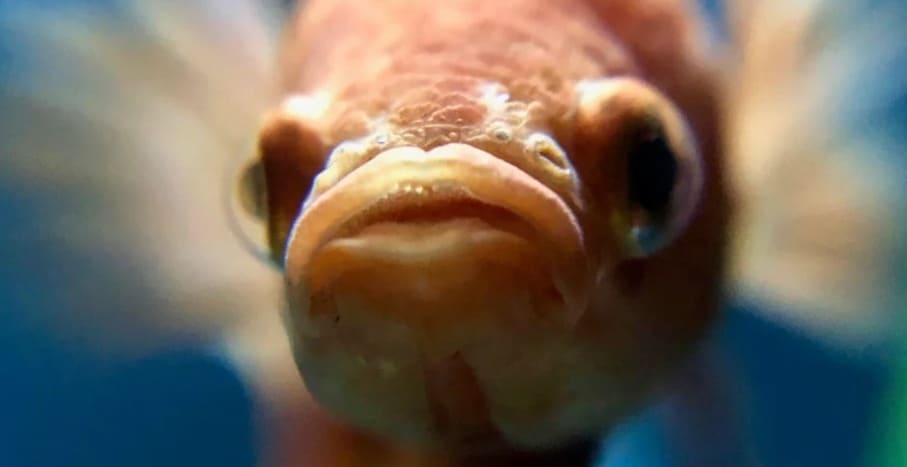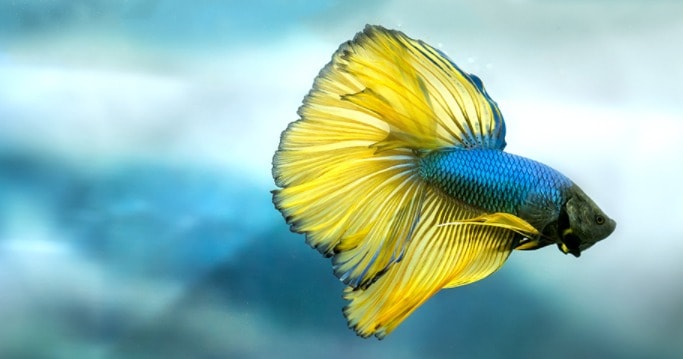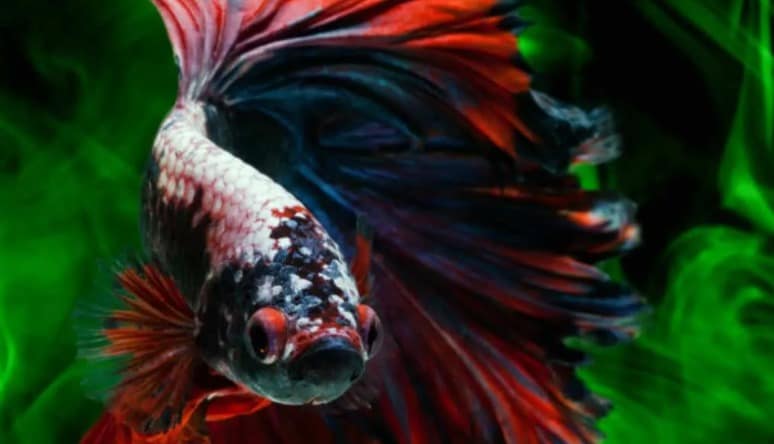White spots on your betta fish can be caused by a variety of things. One of the most common causes is Ich disease, also known as white spot disease because it leaves white spots all over the body of your fish. It starts out looking like small dots or bubbles that are visible to the naked eye and quickly spread across the entire body.
If left untreated, this condition will eventually kill your fish because it prevents them from being able to eat properly and disturbs their natural immune system. Fortunately, there are many treatment options available for this condition that include medications or antibiotics that you can purchase at any pet store!
Why Does My Betta Fish Have White Spots?
The most common cause of white spots on a betta is Ich disease, also known as white spot disease because it leaves white spots all over the body of your fish. It starts out looking like small dots or bubbles that are visible to the naked eye and quickly spread across the entire body.
These white spots are the result of a parasitic infection, but other types of pathogens can also cause them. If you see your fish developing white spots on the body and fins, it’s probably best to treat for Ich disease because this can b a serious condition if left untreated.
What Causes Ich on a Betta Fish?
It may be surprising to hear that ich and other parasites are active in almost every tank across the globe. So while parasites may seem to be to blame, the real reason for ich on a betta fish is stress!
You see, if a betta fish is stressed, the immune system can be weakened, which allows parasites to take advantage of the situation and quickly establish themselves. As a result, ich on betta fish is almost always caused by stress from poor water conditions or temperature changes! Here are my top tips for reducing stress:
Keep their environment clean – It’s important to do your best to keep the water clean and cycled. This will not only reduce stress but also prevent other diseases like fin rot.
Add some plants or decorations – Aquarium plants not only look nice but also provide a natural hiding place for your betta, which will reduce stress levels. Moss balls are excellent for this purpose!
Do not overcrowd your tank – Betta fish need plenty of space to swim around, so try to avoid overcrowding your tank. This will help reduce stress and promote healthy growth. Dividing your fish can be a good idea.
Provide a healthy diet – Bettas are carnivores and need a diet that is high in protein. A good quality betta food will have all the nutrients your fish needs to stay healthy.
You can also give your betta some live food, like bloodworms and brine shrimp, to help keep them healthy and stress-free. My betta gets VERY happy when I drop some bloodworm into the tank.
Regulate the water temperature and pH – Make sure your tank is at the right temperature – It’s important to make sure that you’re keeping the betta fish in a warm environment, which means maintaining proper temperatures of 78 degrees Fahrenheit (25 Celsius). If it happens to get too cold, this can be very stressful for your fish and can cause ich to form.
The pH is also important… betta fish prefer a pH of around 6.5 and 8. This can be adjusted by using pH-lowering or pH-raising additives as needed.
How to Treat Betta Fish With Ich Disease?
There are a few different ways to treat ich on a betta fish. The most common treatment is to use over-the-counter medication or antibiotics. You can also try using a salt bath or raising the water temperature in your tank. I will now go into more depth about each method of treatment:
Method 1: Remove your betta from its tank
Moving your betta to a new tank will cause the ich to die in the current tank. You see, ich needs a host to survive. Without a host (your betta) the ich won’t have anything to feed off of and will eventually die.
Method 2: Salt
You can also get rid of ich by using aquarium salt. You see, ich hates salt. By adding salt to your tank, you will be able to kill the ich without harming your betta. The only downside is that it can take a few days for the salt to work.
The salt also improves your betta’s slime coating, which helps it to battle against ich and other parasites. This method will help all fish in the tank.
Use 1tsp of aquarium salt for every 1 gallon of water in your tank. However, read the instructions on your specific salt, as they can vary depending on your purchase.
Next, change 1/4 of the water every few days. Once ten days have passed, stop adding any more salt, but stay consistent with the regular water changes. This will ensure that all the salt and ich are gone.
Method 3: Medication
Medication for ich is probably the most common method of treatment. You can find it at any pet store or online, but make sure to get one with methylene blue or malachite green in it.
I prefer to use Rid Ich Plus. This product is specifically formulated to treat ich and comes in a liquid form, which is easy to administer. I recommend using Rid Ich Plus in a quarantine tank.
You will need to follow the dosage instructions on the bottle, but usually, you will add it directly to your tank. The medication will kill the ich while also being safe for your betta.
What Does Ick Look Like on a Betta Fish?
Ich starts out looking like small white dots or bubbles that are visible to the naked eye. This spreads quickly across the body of your fish and if left untreated, will eventually become so overwhelming that your betta cannot handle it anymore.
The image below shows a betta fish with Ich disease. As you can see, it has spread from the tail to most of its body:
How to Prevent Ich in Bettas?
I’ve talked about how to treat a betta fish with ich, but now it’s time to discuss what you can do to stop it from happening again in the future. Truth is, this is the best way to tackle ich in bettas.
Quarantine tank
Place any new fish in quarantine tanks before introducing them to the rest of your aquarium. This will allow you to monitor their health and determine if they have any parasites or diseases that can be easily transmitted to other fish in your tank.
Only buy healthy fish
When you are buying fish from a pet store, only select those that look healthy and have no signs of disease. This will help to prevent ich and other diseases from spreading in your tank.
You can do this by noticing the signs of a sick fish, which includes, dull or cloudy eyes, pale gills that are red at the base, lethargic swimming or resting on the bottom of the tank, and any open sores, wounds, or parasites on the body.
Reduce stress
Do your best to reduce the amount of stress in your tank. This can be done by keeping their environment clean, providing them with the proper amount of food to avoid malnutrition or starvation, and keeping them at a comfortable temperature.
Sometimes bettas get white spots because they are stressed out by something in their tank so doing your best to reduce this will go a long way towards preventing ich!
Can Ich Disease Kill a Betta Fish?
Yes, ich disease can kill a betta fish. However, if caught early enough, it is easy to treat ich disease. This means that your betta fish doesn’t have to die if it has ich disease.
It is important to monitor your betta’s health and keep an eye out for any signs of white spots as a result. The earlier you catch the problem, the best chance your betta has for a full and speedy recovery.
Is Ich Disease Contagious?
No, ich disease is not contagious. It can’t be spread to other fish or humans through touch, but it may have been transferred from another tank if your betta caught the infection there first.
In reality, the only way your other fish will catch ich is if their immune system is already compromised. If they are immune-deficient or ill, their bodies will be too weak to fight the infection, and ich disease may develop.
Also, humans don’t have to worry about catching ich disease from bettas. So don’t be afraid to go near to your betta if it has ich disease!
Conclusion
In conclusion, ich disease in betta fish is a common occurrence. Thankfully, it is easy to prevent and treat ich in bettas by reducing stress and using some medications.
If your betta does get white spots (which are the first signs of ick), make sure you take them seriously because this infection can be deadly if left untreated.
I hope you found this article helpful in understanding how to prevent and treat ich disease in bettas. If you have any questions, feel free to drop a comment down below or contact me.
